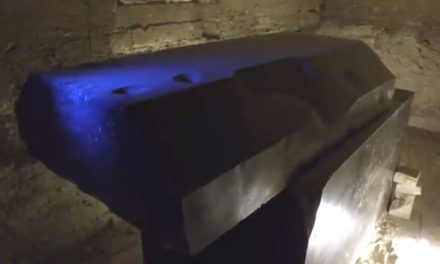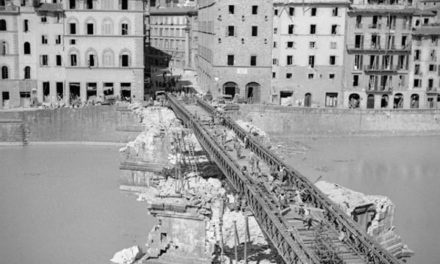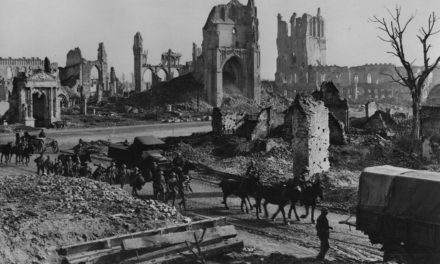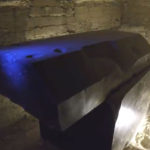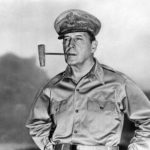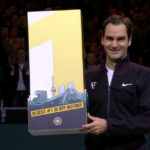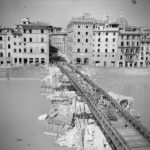Growing up in Syracuse, New York I accepted the fact that the local ballpark was called MacArthur Stadium. It wasn’t until reading “American Caesar” by William Manchester that I leaned that it, like many public works and venues across the country, was named for General Douglas MacArthur. Following contemporary trends after being replaced in 1997, it was named after a corporate sponsor (and already renamed for another sponsor since then). But it says a great deal that the stadium had been named for a man who really had little direct connection to Syracuse beyond being thought of very highly, especially during World War II as it was in 1942 that the stadium was renamed in his honor from Municipal Stadium.
Of course many Syracusans had likely been under his command in the Pacific theatre of the war but his reputation was complicated. Following the retreat of his Philippine forces to Bataan and onto the fortress of Corregidor he was given the moniker of “Dugout Doug” by the men in the field fighting what proved to be a hopeless – but arguably well directed – resistance against the Japanese invaders. This suggestion of a lack of personal courage became one part of an overly simplistic caricature. By all accounts it wasn’t close to accurate as MacArthur often displayed a complete lack of regard for his own safety when assessing the conditions at the front.
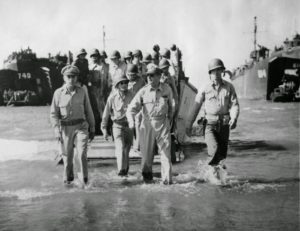
a “second” staged landing at Leyte for the press
All of these matters leading to a complex character with an overly simplistic caricature doesn’t even include one the most interesting and impressive undertakings he was tasked with … the occupation of Japan following their surrender. And the overall nature of post war recovery is a story that Americans appear to have completely forgotten. It was perhaps one of the greatest times in the history of our country. If there could be any truth to Donald Trumps slogan of “Make America Great Again” it would be to look back to around 1946 to 1948. However the underpinnings of the current slogan do not line up well with the nature of America’s greatness and outlook immediately after the war.
American Caesar: Douglas MacArthur 1880 – 1964
Highly recommended! Excellent biography of Douglas MacArthur.
It was our father’s or grandfather’s generation who paid dearly for the ultimate victories to close the door on World War II. My father had been in charge of a medical battalion who went ashore at Utah Beach. Though he seldom wished to tell much about his experiences – and never about the many broken bodies he must have seen and tried to repair – he was proud of his country for building a peace with former enemies that he felt was noble and sustainable. It must have been incredibly difficult but I think he knew that ongoing hatred and punishment of former foes would not erase what had happened, nor what had been witnessed, and it would not serve his family well. In fact thinking back on it, I heard a bit of political griping and commentary growing up (of course) but never recall hearing a concern that “the other party” would in any way invalidate those sacrifices.
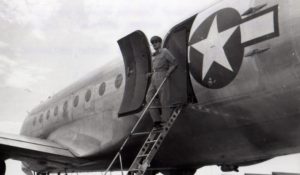
MacArthur Arrives in Japan
I decided to read book because I have a high regard for other works by the late William Manchester. As Manchester did in several important volumes on Winston Churchill, he brought depth and clarity to my understanding of Douglas MacArthur who was also an historic character whose legacy has become overly simplistic and stereotypic. I also found meaningful references to draw between MacArthur and the current conflicted nature of United States politics and world view.


